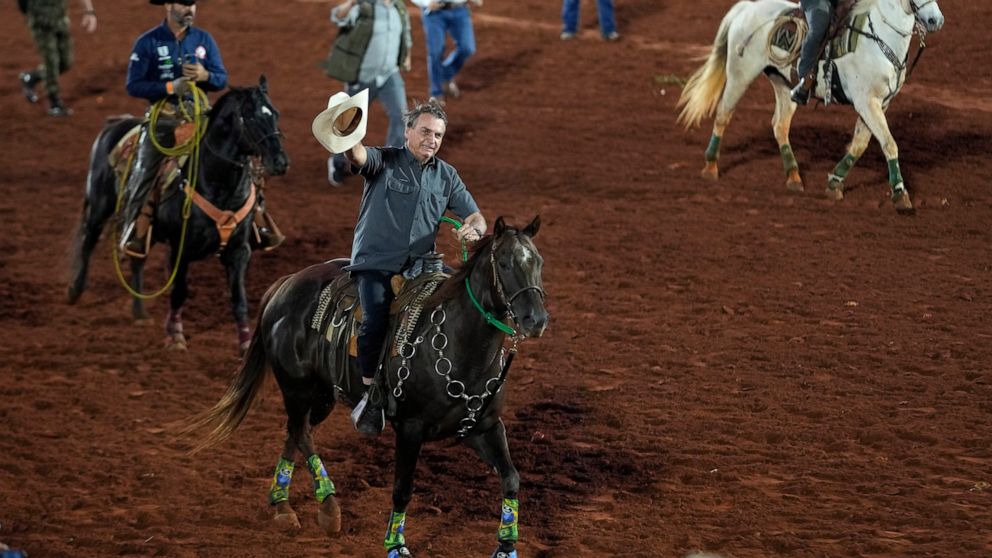SAO PAULO — Antônio Luis Durão is a member of a small minority in Brazil: He’s an undecided voter with mere weeks until presidential elections.
Had the vote taken place a year ago, the 61-year-old fruit farmer would have supported Luiz Inácio Lula da Silva, the leftist former president who governed between 2003 and 2010. During that period, da Silva’s government granted Durão some rights to farm a 26-hectare (64-acre) piece of land in Porangatu in the heartland state of Goias.
But last month, Durão finally received a title for that same plot, giving him full ownership — with the right to sell — though after 10 years. It also will allow him to apply for a loan from a state-run bank, and he hopes to finance a tractor. He’s also considering rewarding incumbent Jair Bolsonaro with his vote.
“I got in here during the Lula years, and I’m grateful, but there was nothing in place. I think this document will make things better for me now,” he told The Associated Press in a phone interview. “One gave me access 14 years ago, and the other is opening my path to the future.”
Durão’s grant is part of the president’s Title Brazil program, which aims to give ownership rights to some 340,000 people who now live on lands that are either state owned or were privately held but unused. The far-right leader, who is trailing in the polls, is also hoping it will help boost his odds of reelection.
Bolsonaro has often touted the program as a means of settling old disputes, creating legal certainty and weakening the leftist Landless Workers Movement, a key ally of da Silva’s that has long staged occupations of what it considers vacant or unused lands — though there have been far fewer seizures in recent years.
It’s a partial, free-market approach to land reform in a vast nation that since colonial times has seen great inequalities in the distribution of land, with a few farmers and corporations holding enormous expanses while millions toil on small plots to which they hold little if any legal claim.
Title Brazil proceedings usually start with rural mayors who reach out to the federal government on behalf of local farmers. Local officials and farmers sit on regional commissions to evaluate the claims. Only those who had already registered for earlier land reform programs are eligible.
The government’s National Institute for Colonization and Agrarian Reform says 733 of Brazil’s more than 5,500 municipalities so far have reached agreements to work with the land…
Click Here to Read the Full Original Article at ABC News: International…

